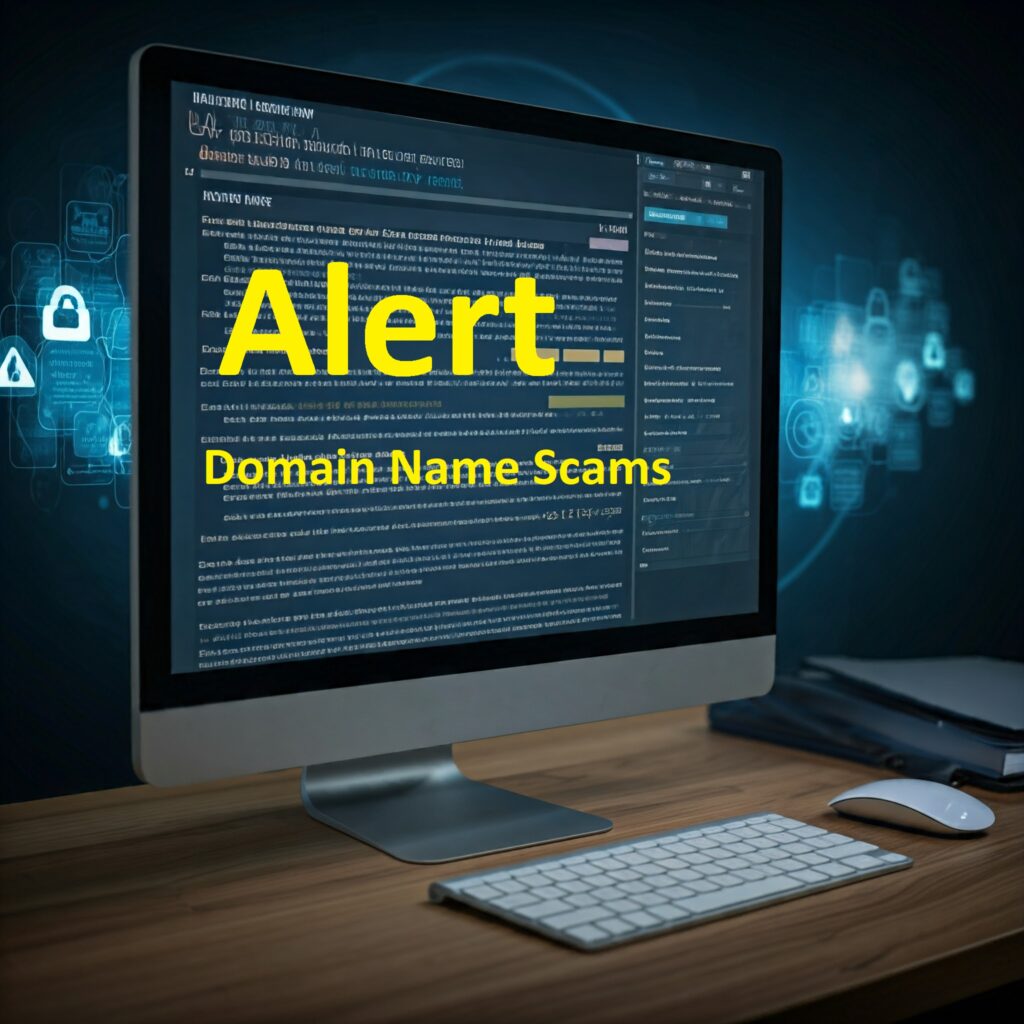Domain Name Scams in 2025: How to Avoid Fraud and Protect Your Domains
In the digital world, domain names are valuable assets, and scammers are constantly devising new tactics to exploit domain owners. Domain name scams can lead to financial loss, compromised websites, and damage to your online reputation.
This guide sheds light on common domain name scams and provides essential strategies to protect yourself from fraud.
Common Domain Name Scams
1. Phishing Emails and Fake Renewal Notices:
- Deceptive Tactics: Scammers often impersonate domain registrars or other legitimate entities, sending emails that claim your domain is about to expire or requires urgent action. These emails may contain links to fake websites designed to steal your login credentials.
- How to Protect Yourself:
- Verify Sender and Links: Always double-check the sender's email address and hover over links before clicking to verify their legitimacy. Look for misspellings, unusual domain names, or inconsistencies.
- Contact Your Registrar Directly: If you receive a suspicious email, contact your registrar directly through their official website or phone number to verify any requests.
- Enable Two-Factor Authentication (2FA): Add an extra layer of security to your registrar account by enabling 2FA. This requires a second form of verification, like a code sent to your phone, in addition to your password.
2. Domain Slamming:
- Unauthorized Transfers: Scammers might attempt to transfer your domain to another registrar without your consent, often through deceptive tactics or by exploiting vulnerabilities.
- How to Protect Yourself:
- Enable Registrar Lock: Most registrars offer a domain locking feature that prevents unauthorized transfers.
- Monitor WHOIS Data: Regularly check your domain's WHOIS information to ensure it's accurate and up-to-date. If you see any unauthorized changes, contact your registrar immediately.
3. Fake Domain Appraisal Services:
- Inflated Valuations: Scammers might offer to appraise your domain and provide inflated valuations to entice you into selling it to them at a lower price.
- How to Protect Yourself:
- Use Reputable Appraisal Services: If you're considering selling your domain, use trusted appraisal services or seek advice from experienced domain brokers.
- Don't Fall for High-Pressure Tactics: Be wary of unsolicited offers or high-pressure sales tactics. Do your research and compare prices before making any decisions.

4. Domain Name Front Running:
- Exploiting Search Queries: Some unethical registrars or resellers might register domain names that users have recently searched for, hoping to sell them back to the interested party at a higher price.
- How to Protect Yourself:
- Choose a Reputable Registrar: Select a registrar with a strong ethical reputation and transparent practices.
- Avoid Publicly Sharing Domain Ideas: Be cautious about sharing your domain name ideas publicly before registering them.
5. Other Scams:
- Fake Invoices: Scammers might send you fake invoices for domain-related services you didn't order. Always verify invoices with your registrar before making any payments.
- Domain-Related SEO Scams: Beware of unsolicited offers for seo services promising guaranteed rankings or traffic boosts through domain-related tactics. Many of these are scams or use unethical practices.
Protecting Yourself from Domain Name Scams
- Don't Click on Suspicious Links: Avoid clicking on links or downloading attachments from unsolicited emails or messages.
- Verify Requests Directly: If you receive a request for your domain information or login credentials, contact your registrar directly through their official website or phone number to verify its legitimacy.
- Enable Security Features: Utilize domain locking, two-factor authentication, and other security measures offered by your registrar to protect your account.
- Educate Yourself: Stay informed about common domain scams and the latest tactics used by fraudsters.
- Monitor Your Domain: Regularly check your domain's WHOIS information and website for any suspicious activity.
- Report Scams: If you encounter a domain name scam, report it to your registrar, ICANN, and relevant authorities.
Conclusion: Stay Vigilant and Protect Your Domains
Domain name scams are an unfortunate reality in the digital world. However, by staying informed, practicing vigilance, and adopting proactive security measures, you can protect yourself and your valuable domains from falling into the wrong hands.
Prioritize domain security and remain vigilant to safeguard your digital assets and enjoy a worry-free online experience.
